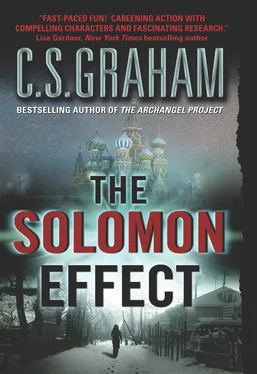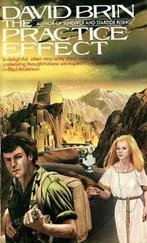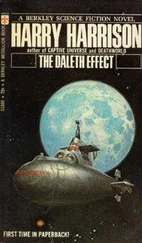Whooping with delight, he swerved to his right and squeezed through a gap where a board had broken off one of the fences. The dog wiggled in behind him.
The Chechen was too big to slip through the hole in the fence. As Stefan darted across the overgrown yard and down the gravel drive leading to the street, he could hear the big man grunting and swearing as he heaved himself up over the tall, jagged fence. He hit the ground on the other side hard. But by then Stefan was already flying down the street toward the railway embankment.
He was aware of the train thundering closer, its whistle now a loud shriek of warning. And he realized that if he didn’t make it across that embankment before the train cut him off, he’d be trapped.
He heard a whimper and looked back. Its head drooping, the pup faltered, stumbled.
“No!” Reaching down, Stefan scooped the dog up against his chest. Staggering beneath the weight, he stumbled across the street, tripped over a rock buried in the rank grass of the elevated rail bed. He could hear the Chechen drawing nearer, his breath coming in determined grunts. Gritting his teeth against exhaustion and pain, Stefan raced up the embankment, his legs reaching, his arms hugging the pup tight.
Big and black and deadly, the engine bore down on them, its shrieking whistle a painful physical blast. Lungs bursting, Stefan sprinted across the tracks. He felt the sucking vacuum as the train roared past behind him, the earth trembling beneath him as he half fell, half slithered down the far side of the embankment, the pup at his side.
At the base of the slope he paused, his heart pounding, his hands shaking as he drew the dog to him and buried his sweaty face in the animal’s thick, warm coat. Then he pushed up, the rhythmic clickity-clack of the train’s wheels loud in his ears.
Looking back he could see an endless line of boxcars stretching out across the marsh, and he smiled. “Come on, boy,” he said to the dog. “Let’s go.”
Salinger parked the silver Range Rover in the shadow of a ruined Teutonic castle and cut the engine. “That’s it.”
Rodriguez studied the tidy stucco house halfway down the street. “Wait here,” he said, pulling on his gloves. He was opening the car door when the call came through from Borz Zakaev.
“There’s been a new development,” said Borz in his deep, gravelly voice. “We were near Znamensk, showing the kid’s picture to some townspeople, when he cut the brake line on the Durango.”
Rodriguez glanced over at Salinger. “You’re sure it was the kid?”
“We chased him,” said Borz. “The little shit ran across the railroad tracks right in front of a train. By the time we got around it, he was gone.” Borz hesitated. “We’re going to need a new car.”
“You can’t get the Durango’s brakes fixed?”
“We didn’t know about the brakes until Zoya crashed into a cement wall. He’s okay, but the SUV’s a wreck.”
“Fuck,” said Rodriguez. How much trouble could one fucking little shit be?
A movement overhead drew his gaze to the cold expanse of northern sky, where a dozen or so ducks flew in a perfect V formation, their wings beating the air as they fled the coming ice and snow. Rodriguez smiled.
“This kid, he thinks he’s smart. He thinks he just bought himself some time. But he’s not smart, he’s stupid. He let us know he’s alive.” He reached for the map, spread it open on the Range Rover’s console. “Where is this Znamensk?”
“Just south of E77 and A229, on the railroad line.”
Rodriguez followed the route with his finger. Most maps of Kaliningrad were shit. But this one had come from the Russian army. The town lay about a third of the way between Kaliningrad and Yasnaya Polyana. He smiled and folded the map away. “Looks like our little pigeon is flying home.”
“So what do we do?”
“Keep checking the towns along the route. You may flush him out. When we’re finished here, the rest of us will move operations to Yasnaya Polyana.”
Nodding to Salinger, Rodriguez closed the car door quietly behind him and started down the walk toward Anna Baklanov’s well-kept little house.
Izmir, Turkey: Tuesday 27 October 7:35 A.M. local time
Serene and sun-kissed, the city of Izmir stretched out in a graceful arc around its wide Aegean bay. Once, the city had been called Smyrna, birthplace of Homer and site of more than three thousand years of Greek civilization. Then came the devastation and ethnic cleansing that followed World War I, and this new city, Izmir, had risen from the ashes as a symbol of modern Turkey, with wide tree-lined avenues and-for more than half a century now-a strong U.S. military presence.
As they circled in for their landing, Jax was aware of October leaning forward beside him, her shoulders set in a straight, tense line as she stared out the window.
“For some reason, I thought your father was a petroleum engineer,” he said, watching her.
She shook her head, her gaze still on the city wedged between the mountains and the sparkling blue sea below them. “My stepdad’s in the oil industry. My real father was in the Navy.”
“Then if he was stationed at Izmir, he must have been in intelligence.”
She turned to look at him. “How did you know that?”
“Maybe I’m psychic,” he said teasingly.
She wrinkled her nose at him, and he laughed and said, “Most Americans stationed in Izmir are Air Force personnel assigned to the air base. But there’s also a huge listening station here that’s been operational since the fifties. So if your dad was in the Navy, and here, I figured he must have been in intelligence.”
“Ah.”
“How long was he stationed in Turkey?”
“Two years.” She was silent a moment, then said, “He died here. His plane crashed in the Aegean.”
“I’m sorry.”
“What’s strange is that your buddy Andrei mentioned my dad when we were in Kaliningrad.”
“Andrei is not my buddy.”
A glint of amusement lit her eyes, but all she said was, “How could he have known about my dad?”
“The Russians have always kept files on U.S. military officers, especially intelligence personnel. They get their information from everything from open sources like the Army Times to reports fed back to them by their own people.”
“But my dad died when I was a kid.”
Jax shrugged. “Andrei started out in the KGB. They might have run into each other.”
She fell silent, her gaze returning to the city that now rushed toward them, its whitewashed walls turned to gold by the light of the rising sun.
They stepped off the plane into a soaring, ultra-modern glass-and-steel airport terminal to find a tall, lanky man in a United States Air Force uniform waiting for them.
He had the short-cropped sandy hair, tight jaw, and rigid bearing of a career military man. “Jax Alexander?” he said, assessing Jax with a flinty gaze and obviously finding him wanting. “Rita Catalano suggested I meet you.”
“Ah. Dear Petra,” said Jax.
The Captain frowned. “Petra?”
“Never mind.”
The Captain’s gaze slid past Jax to October, and an amazing transformation came over his face. His eyes widened. His sneer faded. Jax squinted at her, trying to see her through the Captain’s eyes. Sure, she was an attractive woman. But after two long flights and a day spent being chased around Russia, she was looking more than a little ragged.
“You’re Ensign Guinness?” said the Captain, shaking her hand with cheerful enthusiasm. “I’m Lowenstein. Tom Lowenstein. I’ve got a car waiting for us out front. If you’ll follow me, your bags should already be on their way down.”
He ushered them toward a nearby stairwell, where a uniformed guard toting a machine gun stepped forward menacingly. Lowenstein flashed his ID. The guard saluted and stepped back.
Читать дальше











